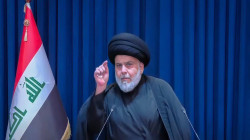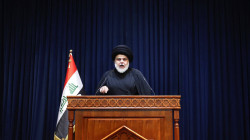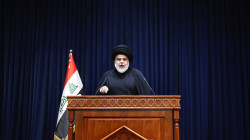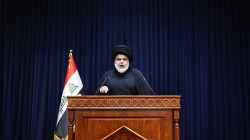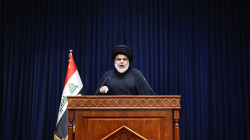The National Interest: How Iran Turned Iraq Against the Abraham Accords
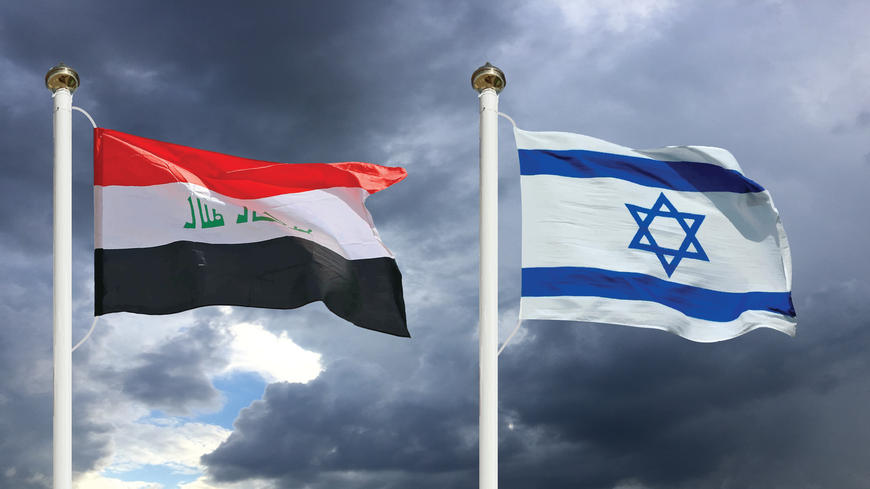
Shafaq News/ On May 26, the Iraqi parliament passed a bill, “Criminalizing Normalization and Establishment of Relations with the Zionist Entity,” that banned all efforts to normalize ties with Israel. The legislation, which calls for death sentences for most offenses in the broadly defined category of “normalization” has been roundly condemned in the West, with some calling it “brutal” and “barbaric.” Muqtada al-Sadr, the head of the Sadrist Movement, proposed the bill and called his supporters to the streets to celebrate the “great achievement.”
This latest piece of political theater raised eyebrows even by the standards of his previous antics. For once, the new legislation followed closely the 1969 law passed by Saddam Hussein, which made Iraq one of the strongest non-normalization countries in the Middle East.
Legislators from al-Sadr’s party revealed that al-Sadr pushed the law as part of a complex strategy to outwit the Iranians in his effort to create a government. In the October 2021 elections, al-Sadr and his allies, the Kurdish National Democratic Party, the Sunni Sovereignty Block, and others gained a majority of seats, prompting him to form the National Salvation Coalition. Al-Sadr vehemently denounced Iran’s domination of Iraq and refused to consider the pro-Tehran bloc led by the former Prime Minister Nuri al-Malaki, known as the Coordination Framework. The theocratic regime in Tehran pulled out all the stops to prevent a National Salvation government, effectively gridlocking the political process. Nine months after the election, no new government exists and the badly needed reforms to revive the flagging economy are still on the drafting board. The Iranians are adamant about returning to the previous pattern of a “national consensus” cabinet, which included the pro-Tehran Shia.
The stakes for Iran could not be higher. Since the American invasion in 2003, the regime has worked assiduously to expand its domination of Iraq. Shia politicians like Maliki appointed Tehran loyalists to key ministries. More to the point, the Islamic Revolutionary Guards Corps (IRGC) and its foreign operations unit, the Quds Force, have operated several powerful militias that underpin its political control of the country. Qassem Soleimani, who died in an American attack in January 2020, famously proclaimed himself to be the “viceroy” of Iraq. His greatest achievement was to pressure the government of Prime Minister Haider al-Abadi to formally incorporate Shia militias into the security forces.
Through underhand tactics, Tehran has used Iraq to subvert oil-imposed sanctions. For instance, on the order of the Central Bank, private Iraqi banks have helped Iran launder money by opening credit accounts for exporting oil, gas, and other commodities. Further afield, Iran has violated the riparian laws by diverting more than its share of water from the Arvand River. Even the contract for supplying electricity to Iraq was not honored. Because of mismanagement, Iran could not produce enough energy during peak periods, leaving its Iraqi client with only intermittent supply in the hot summer months.
Iraq’s importance as a conduit for weapons to Syria and Lebanon through the so-called “land bridge” is well known. A government less dependent on Tehran would have endangered these hard-won achievements. Most threatening to Iran was, among other anti-Iran measures, al-Sadr’s call to disband the militias during the campaign.
Overshadowing all these concerns is the larger geopolitical realignment in the region. Tehran reacted furiously to the 2020 Abraham Accords, anticipating that Iraq may also move into the anti-Iran bloc of countries where Israel looms large. The IRGC’s Intelligence Unit Sazman-e Ettelaat Sepah (SAS) concluded that the Kurds, who had a historical relationship with Israel, would provide a point of entrance.
Energy is another link in Israel-Iraq relations. Sources estimate that in the last year, Israel purchased 24 percent of its oil from Kurdish-controlled fields and that Baz Karim, the CEO of the oil company KAR Group, was quietly selling oil to Israel. One of Iran’s proxy militias damaged his home in a missile strike. SAS also accused the Kurdish authorities of allowing Israel to set up a military base in their territory.
More overtly, the Regional Kurdish Authority allowed the New York-based Center for Peace and Communication to hold a conference in Erbil in September 2021. The Center has worked to promote normalization with Israel in the Middle East and its conference, with some discrete backing from the Gulf states, attracted 300 hundred mostly Sunni and Kurdish participants. The Iranian media denounced the conference and even implied that al-Sadr was behind it which prompted him to initiate the anti-Israeli legislation.
Despite al-Sadr’s “great achievement,” the Iranian theocracy is not confident that the legislation will stop Iraq’s drift towards the Abraham Accords. Many Sunnis have strong ties with the United Arab Emirates and Bahrain and would like nothing better than to move out of Iran’s orbit. As a commentator in Asharq al-Awsat, a Saudi-supported newspaper, noted, the Abraham Accords’ architecture represents peace, stability, and prosperity as opposed to the Iranian axis, which stands for permanent conflict and deprivation. The IRGC is not even sure about al-Sadr’s true position. Two media sources associated with the hardliners complained that al-Sadr “tricked Iran” because the law allows a measure of normalization with Israel through some cleverly crafted loopholes.
Whatever al-Sadr’s true motive, the legislation is bound to create problems for Iraq. Domestically, it could spark tensions with the Kurds who would have to stop their extensive contracts with Israel. Internationally, the impact may be more severe. The State Department denounced the legislation in the strongest possible terms, noting that it stands “in stark contrast to progress Iraq’s neighbors have made by building bridges and normalizing relations with Israel, creating new opportunities for people throughout the region.”
The law may also impede investment in Iraq, notably in the energy and resource industries. Washington can cite the bill to discourage or prohibit investment by foreign companies on the grounds that participating in a commercial boycott of Israel is unlawful in the United States. It goes without saying that the legislation would complicate relations with the Gulf members of the Abraham Accords, robbing Iraq of desperately needed economic assistance.
Arguably, what is a loss for Baghdad will be a win for Tehran’s efforts to prevent Iraq from drifting into the rival geopolitical block. All the more so because the United States has been crafting an anti-Iran security umbrella, with the Abraham Accords states at its core. Equipped with the latest anti-missile and anti-drone systems, this “Middle East NATO” is expected to nullify the Iranian advantages in missile technology. Sadly, Iraq may lose more from Tehran’s campaign to keep it out of the normalization camp.
Al-Sadr has threatened to reactivate his own militia, the Saraya al-Salam (Peace Brigades), if the gridlock persists. He also called on lawmakers of his block to withdraw from the parliament. All seventy-three lawmakers resigned soon after, plunging the deeply divided nation into political uncertainty. Whatever the volatile al-Sadr does next is far from obvious. However, it is plausible that Iran’s anti-Abraham Accords crusade may plunge Iraq into another round of bloodshed.
(By Farhad Rezaei for the National Interest)
